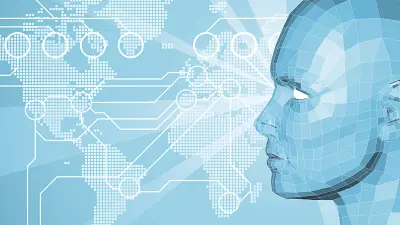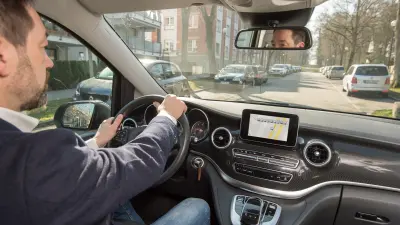AI research — the future is getting smarter

In cars, the chauffeur is included, the room temperature is automatically regulated, and our home is almost burglarproof: Christoph Peylo, head of the Bosch Center of Artificial Intelligence, explains how artificial intelligence can make our lives easier.
Artificial intelligence is something that a lot of people are talking about. What is it all about?
The concept of artificial intelligence goes all the way back to the 1950s, and strictly speaking, it refers to a system that can understand complex interrelationships and derive actions from them. In the future, machines will be capable of autonomously learning from experience and acting on this basis. The fields of application are numerous — artificial intelligence is making autonomous driving a reality just as much as it’s making intelligent home assistants a reality.
The significant progress it has made over the past ten years is primarily down to the fact that processing power and storage are a hundred times more affordable than they were even at the turn of the new millennium, and that the digital transformation has made considerably more data available, which is a requirement for deep learning.
Christoph Peylo

Christoph Peylo, 50, heads the Bosch Center for Artificial Intelligence, which has locations in Bengaluru (India), Palo Alto (United States), and Renningen (Germany). The center aspires not only to be among the world leaders in research, but also to make the benefits of artificial intelligence tangible through products and services. Between now and 2021, Bosch will invest 300 million euros in the development of the center.
In the future, will we be surrounded by intelligent objects capable of making decisions for us?
Definitely! That is already a reality today, to a certain extent. Take our plant in Homburg as an example: here, we use artificial intelligence to scrutinize the effectiveness of our quality control. Artificial intelligence evaluates process and test data to establish which physical checks are actually informative. That will enable products to be manufactured more quickly while maintaining the same quality.
In other areas we are still a long way away from that. In general, I don’t give much credit to the image of an almighty artificial intelligence that will pervade all areas of life. However, it will make our lives easier in many areas, whether it’s intelligent cars finding parking spaces more easily, having the room temperature automatically adjusted to our needs, or protecting our homes from break-ins.
You started up the Delta-Lab, a collaboration with the University of Amsterdam.

For us, collaborating with the top experts from academia is vital. We believe that we can best solve the technical challenges that artificial intelligence pose by working together. At the Delta-Lab, “Deep Learning Technologies Amsterdam”, we enable our researchers to really connect with the experts at the Machine Learning Lab of the university through “research sabbaticals.” We are also planning to publish research findings in leading journals, which is unique in industry-relevant research.
Bosch places a lot of emphasis on data security and the private sphere. How can that be guaranteed?
We don’t just approach data security on one level, but on several. That means that data security is an issue for all of our products, regardless of whether we are talking about engine control units or the Bosch IoT Cloud. We believe that through “security and privacy by design” and multi-level security concepts, we can really guarantee data security. In addition, the German legal system and the European legal system form a structure that is comparatively more restrictive than the American system. With our server locations in Germany, we are making a considerable contribution in this area. On top of that, we only use data for applications that the customer has explicitly agreed to. That way, the users decide what data they want to provide and for what purposes.
Summary
Artificial intelligence can not only make everyday life easier but also optimize processes. It is important for Bosch to work with the best scientists in order to be among the top researchers in the world. Data security plays an important role.


